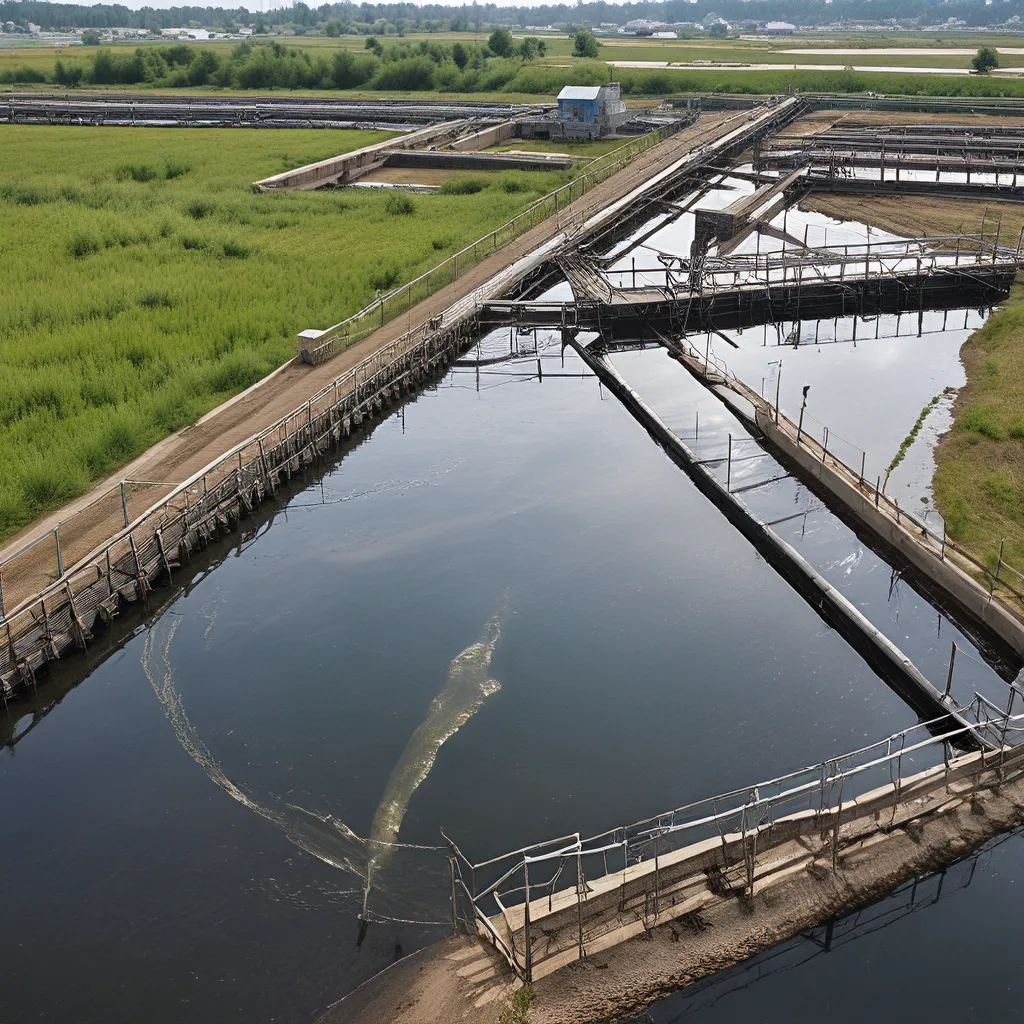
The Interconnected Challenges of Water, Energy, and Food
As a passionate advocate for sustainable resource management, I’ve been deeply fascinated by the intricate web of relationships between water, energy, and food systems. It’s a complex and often underappreciated reality that these three fundamental elements of modern life are inextricably linked, forming what is known as the water-energy-food (WEF) nexus.
The water-energy-food nexus is a conceptual framework that highlights the interdependencies and trade-offs between these critical resources. For instance, water is essential for energy production, whether it’s for hydropower, cooling power plants, or extracting fossil fuels. At the same time, energy is required to extract, treat, and distribute clean water for domestic, agricultural, and industrial use. And both water and energy are vital inputs for food production, processing, and transportation.
The challenge we face is how to manage these resources in a sustainable and equitable manner, balancing the competing priorities and sometimes conflicting demands of each sector. This is where the role of wastewater treatment becomes increasingly important, as it sits at the intersection of the water-energy-food nexus.
Wastewater Treatment: The Nexus in Action
Wastewater treatment is a critical component of the water-energy-food nexus, as it bridges the gap between water management, energy production, and food security. Let me explain how this interconnection plays out:
Water Management: Wastewater treatment is essential for recycling and reusing water resources. By removing contaminants and reclaiming water from sewage, wastewater treatment plants can supplement freshwater supplies and reduce the strain on our limited water sources. This is particularly important in regions facing water scarcity or droughts, where recycled water can be used for irrigation, industrial processes, and even potable use.
Energy Production: Wastewater treatment facilities are not just consumers of energy, but can also generate energy through the biogas produced during the treatment process. This biogas can be captured and used to power the treatment plant itself, or even fed into the local energy grid, reducing the facility’s carbon footprint and contributing to the overall energy mix.
Food Security: The nutrient-rich byproducts of wastewater treatment, such as treated sludge or effluent, can be repurposed as fertilizers for agricultural use. By closing the loop between wastewater, energy, and food production, we can improve soil health, boost crop yields, and enhance food security in a sustainable manner.
Balancing the Priorities
Navigating the water-energy-food nexus and optimizing the role of wastewater treatment is no easy feat. It requires carefully balancing the priorities and trade-offs between these interconnected systems. Let’s explore some of the key considerations:
Water Conservation: In regions facing water scarcity, the priority may be on maximizing water reuse and recycling through advanced wastewater treatment technologies. This can involve implementing membrane filtration, reverse osmosis, or advanced oxidation processes to produce high-quality reclaimed water for various applications.
Energy Efficiency: Wastewater treatment plants are energy-intensive operations, and there is a strong incentive to improve their energy efficiency to reduce operating costs and environmental impact. Strategies like optimizing pump operations, utilizing renewable energy sources, and capturing biogas can help wastewater facilities become more self-sufficient and even net energy positive.
Nutrient Recovery: For areas focused on food security and sustainable agriculture, the recovery and repurposing of nutrients from wastewater, such as nitrogen and phosphorus, can be a top priority. Nutrient-rich sludge or treated effluent can be used as organic fertilizers, reducing the reliance on synthetic fertilizers and closing the nutrient loop.
Stakeholder Collaboration: Achieving a balance within the water-energy-food nexus requires close collaboration among various stakeholders, including policymakers, utility providers, agricultural producers, and the public. Effective communication, resource-sharing, and coordinated decision-making are crucial to ensuring that the tradeoffs and synergies between these sectors are properly identified and addressed.
The Future of Wastewater Treatment: Innovation and Integration
As we look to the future, the role of wastewater treatment in the water-energy-food nexus is only going to become more crucial. Emerging technologies and innovative approaches are already transforming the way we manage and optimize these interconnected resources:
Technological Advancements: From advanced membrane filtration to microbial fuel cells and algae-based wastewater treatment, new technologies are constantly being developed to enhance the efficiency, energy generation, and resource recovery capabilities of wastewater treatment systems.
Integrated Systems: Integrating wastewater treatment with renewable energy sources, such as solar or wind power, can create self-sustaining facilities that generate their own electricity and minimize their environmental impact. Coupling wastewater treatment with agricultural operations can also facilitate the circular flow of nutrients and water, further strengthening the water-energy-food nexus.
Data-Driven Decision-Making: Leveraging data analytics, artificial intelligence, and the Internet of Things can provide valuable insights into the complex relationships within the water-energy-food nexus. This can inform more strategic and adaptive decision-making to optimize resource allocation, improve system resilience, and support sustainable development.
As I reflect on the interconnected challenges and opportunities presented by the water-energy-food nexus, I’m struck by the critical role that wastewater treatment plays in balancing these priorities. By embracing innovation, fostering collaboration, and adopting a holistic, systems-based approach, I believe we can unlock the true potential of wastewater treatment to safeguard our precious resources and build a more sustainable future.
So, if you’re interested in learning more about how Alpha Wastewater is leading the charge in sustainable wastewater management, I encourage you to explore our website and reach out to our team of experts. Together, we can navigate the complexities of the water-energy-food nexus and make a tangible difference in the lives of our communities and the health of our planet.